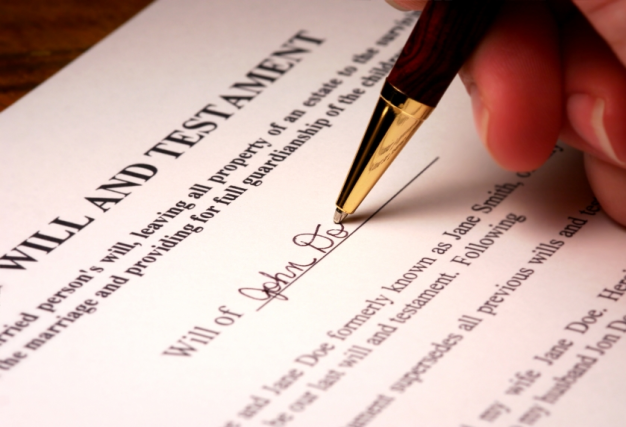How to Write a Will for Property in Nigeria (2024)
Writing a will is an important task that everyone should consider. It is a legal document that outlines how a person’s property and assets will be distributed after their death. For individuals in Nigeria, drafting a will is subject to three main laws: statutory laws, customary laws, and Islamic law. Understanding the requirements for writing a will is crucial to ensure that it is valid and legally binding.

To write a valid will in Nigeria, the testator must meet certain requirements. Firstly, the person making the will must be an adult, having attained the age of 21 years under the Wills Act or the age of 18 years under the Wills Law of Lagos State. Secondly, the will must be in writing and signed by the testator or by someone in their presence and at their direction. Additionally, the will must be witnessed by two or more persons who are present at the same time and who attest to the signature of the testator.
Writing a will for property in Nigeria can be a complex process, especially if the individual has a large estate or multiple beneficiaries. It is important to seek legal advice from a qualified lawyer to ensure that the will is valid and legally binding. This article will provide a comprehensive guide on how to write a will for property in Nigeria, including the requirements for a valid will, the types of property that can be included in a will, and the steps involved in writing a will.
UNDERSTANDING PROPERTY OWNERSHIP IN NIGERIA
In Nigeria, the Land Use Act of 1978 governs the ownership and transfer of land. Under this act, all lands in Nigeria are owned by the government and individuals can only hold a leasehold interest in the land. The government grants individuals a Certificate of Occupancy (C of O) to evidence their leasehold interest in the land.
There are two types of land in Nigeria: Customary and Statutory. Customary land is owned and controlled by traditional rulers and communities, while Statutory land is owned and controlled by the government.
It is important to note that there are restrictions on the type of property that can be willed in Nigeria. Only property that is owned by the testator can be willed. If the property is jointly owned, the testator can only will his or her share of the property.
Furthermore, it is important to ensure that the property is properly documented and registered with the relevant government authority. This will help to avoid disputes and ensure that the property is transferred to the intended beneficiary.
IMPORTANCE OF WRITING A WILL
Writing a will is an important step in estate planning, and it is crucial to ensure that your loved ones are adequately protected. A will is a legal document that outlines how a person’s property should be distributed after their death. Without a will, the distribution of property may be left to the discretion of the courts, which can be a lengthy and expensive process.
In Nigeria, drafting a will is particularly important due to the complex legal system and the potential for disputes over property. It is essential to have a clear and legally binding document that outlines the distribution of property to avoid any confusion or conflict among family members.
Writing a will also allows individuals to choose who will manage their estate after their death. This person, known as the executor, is responsible for carrying out the wishes outlined in the will. Choosing an executor can be a difficult decision, but it is important to choose someone who is trustworthy and capable of handling the responsibilities.
Another important aspect of writing a will is the ability to appoint a guardian for any minor children. Without a will, the court may appoint a guardian based on their own discretion, which may not align with the wishes of the deceased.
REQUIREMENTS FOR WRITING A WILL IN NIGERIA
To ensure that a will is legally binding in Nigeria, there are certain requirements that must be met. These requirements are put in place to ensure that the testator’s wishes are clearly expressed and that there is no ambiguity or confusion in the will. Here are some of the key requirements for writing a will in Nigeria:
AGE
Under the Wills Act, only an adult can make a will. Such an adult must have attained the age of 21 years. However, under the Wills Law of Lagos State, an adult must have attained the age of 18 years to make a will. This means that anyone who is below the age of 18 or 21, depending on the applicable law, cannot make a will.
CAPACITY
A testator must have the capacity to make a will. This means that the testator must be of legal age and have mental capacity. Mental capacity means that the testator must be of sound mind, understand the nature and effect of the will, and be aware of the property he or she is disposing of.
VOLUNTARINESS
A will must be made voluntarily. This means that the testator must not be under any undue influence, coercion, or pressure when making the will. The testator must be making the will of his or her own free will and without any external influence.
FORMALITIES
A will must be in writing, either typed or handwritten. It must be signed by the testator or by someone in his or her presence and at his or her direction. The signature must be witnessed by at least two persons who are present at the same time. The witnesses must sign the will in the presence of the testator.
SOUND DISPOSING MIND
The testator must have a sound disposing mind both at the time of giving instructions for the drafting of the will and at the time of signing the will. This means that the testator must be of sound mind and must understand the nature and effect of the will.
STEPS TO WRITING A WILL FOR PROPERTY IN NIGERIA
Drafting a will is an important step in planning for the future, especially when it comes to property. Here are the steps to writing a will for property in Nigeria:
- Identify the Property: The first step in writing any type of will in Nigeria for property is to identify the property that you want to include in your will. This could include real estate, bank accounts, investments, and personal belongings.
- Choose an Executor: An executor is the person who will be responsible for carrying out the instructions in your will. Choose someone you trust who is capable of handling the responsibilities.
- Determine Beneficiaries: Determine who you want to inherit your property. This could include family members, friends, or organizations.
- Draft the Will: Draft the will with the help of a lawyer or using a template. Be sure to include all the necessary information, such as the identification of the property, the beneficiaries, and the executor.
- Sign and Witness the Will: Sign the will in the presence of at least two witnesses who are not beneficiaries. The witnesses must also sign the will in your presence.
- Store the Will: Store the will in a safe place, such as a safe deposit box or with a lawyer.
By following these steps, you can ensure that your property is distributed according to your wishes after your passing.
CHOOSING AN EXECUTOR
When writing a will, one of the most important decisions you will make is choosing an executor. An executor is the person who will be responsible for carrying out your wishes after your death. It is essential to choose someone you trust to handle your affairs and follow your instructions. Here are some things to consider when choosing an executor:
- Trustworthiness: The executor should be someone you trust to act in your best interests and follow your instructions. This person should also be reliable and responsible.
- Availability: The executor should be available to carry out your wishes after your death. If you choose someone who lives far away or has a busy schedule, it may be difficult for them to fulfill their duties.
- Financial Responsibility: The executor will be responsible for managing your assets and distributing them to your beneficiaries. It is important to choose someone who is financially responsible and has experience managing money.
- Legal Knowledge: While it is not necessary for the executor to be a lawyer, it is helpful if they have some legal knowledge. This will make it easier for them to navigate the legal process of probate and ensure that your wishes are carried out according to the law.
Once you have chosen an executor, it is important to discuss your wishes with them and make sure they understand their responsibilities. You should also provide them with a copy of your will and any other relevant documents. By choosing the right executor, you can ensure that your wishes are carried out and your loved ones are taken care of after your death.
UPDATING YOUR WILL
Updating your will is an important step to ensure that your wishes are accurately reflected as your life circumstances change. In Nigeria, a will can be amended through a Codicil, revoked entirely, or a new will can be made at any time during your lifetime to reflect your most current wishes and new property acquired.
It is recommended to periodically review your will to reflect any changes in your circumstances, including changes in beneficiaries and the distribution of assets. Here are some important things to consider when updating your will:
- Executor: Ensure that your chosen executor is still willing and able to carry out your wishes. If not, consider appointing a new executor.
- Beneficiaries: Review your list of beneficiaries and ensure that it is up-to-date. Consider adding new beneficiaries or removing those who are no longer relevant.
- Guardians: If you have minor children, ensure that the guardians you have appointed are still willing and able to take on this responsibility.
- Assets: Review your assets and ensure that they are accurately reflected in your will. Consider adding new assets or removing those that are no longer relevant.
- Debts: Consider any outstanding debts that may affect the distribution of your assets and ensure that they are accurately reflected in your will.
- Tax implications: Consider any tax implications that may affect the distribution of your assets and seek professional advice if necessary.
Updating your will is a simple process that can be done through a Codicil or by making a new will. It is important to ensure that your will accurately reflects your wishes and that it is updated regularly to reflect any changes in your circumstances.
CONCLUSION
Writing a will for property in Nigeria is a crucial step in ensuring that your assets are properly distributed after your death. It is important to note that there are different types of wills that can be written under the Nigerian law, including statutory, customary, and Islamic wills.
To write a valid will, the testator must have the capacity to do so, be of legal age, and the will must be made voluntarily, in writing, and signed by the testator. It is also important to seek legal advice when writing a will to ensure that all legal requirements are met.
When writing a will, the testator must clearly state how their property should be distributed, including any specific bequests or gifts. The testator should also name an executor who will be responsible for managing the estate and distributing the assets according to the will.
It is important to regularly review and update your will to ensure that it reflects your current wishes and circumstances. Failure to do so may result in unintended consequences and disputes among family members.
FREQUENTLY ASKED QUESTIONS
WHAT IS A WILL?
A will is a legal document that outlines how a person’s assets and properties should be distributed after their death. It is a way for an individual to ensure that their assets are distributed according to their wishes.
HOW DO I WRITE A VALID WILL?
To write a valid will in Nigeria, an individual must be at least 18 years old and have what is known as testamentary capacity, meaning they have a sound mind. The will must be in writing and signed by the testator in the presence of two witnesses who are also over 18 years old and not beneficiaries of the will.
WHAT ARE THE LEGAL REQUIREMENTS FOR MAKING A WILL IN NIGERIA?
The legal requirements for making a will in Nigeria include being of legal age, having testamentary capacity, and having the will in writing. The will must also be signed by the testator in the presence of two witnesses who are not beneficiaries of the will.
WHO CAN INHERIT PROPERTY IN NIGERIA?
In Nigeria, property can be inherited by the spouse, children, parents, siblings, and other relatives of the deceased. The distribution of property depends on the laws of the state where the property is located and the provisions of the will.
WHAT HAPPENS IF I DIE WITHOUT A WILL IN NIGERIA?
If an individual dies without a will in Nigeria, their property will be distributed according to the laws of intestacy. This means that the property will be distributed to the deceased’s next of kin in a predetermined order.
WHERE SHOULD I KEEP MY WILL IN NIGERIA?
It is important to keep a will in a safe and secure place such as a bank safe deposit box or with a trusted lawyer. The executor of the will should also be informed of the location of the will and how to access it.


